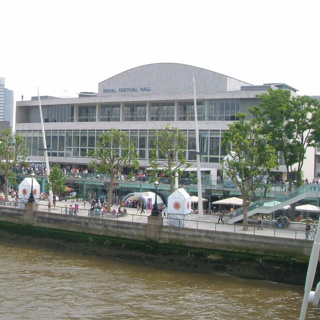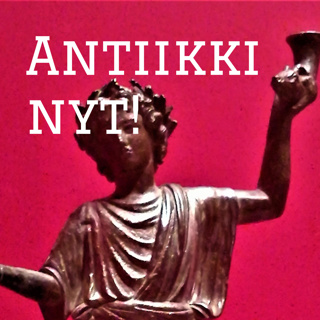
80. Lucky and unlucky admirals and generals
A tale of good and bad luck among high-ranking military men. That’s the fortunate Admiral Nelson and his far less fortunate victim, the Neapolitan Admiral Caracciolo. And Napoleon as a general enjoying the good fortune of being saved by the far less fortunate Desaix. Plus the difficulties of building the Second Coalition, especially for a British diplomat who had to wade through to icy water to try to put it in place. Only for his bit to fail, followed by the whole thing rapidly beginning to unwind. Illustration: Death of General Louis Desaix by Jean Baptiste Regnault. This file has been identified as being free of known restrictions under copyright law, including all related and neighboring rights. Music: Bach Partita #2c by J Bu licensed under an Attribution-NonCommercial-No Derivatives (aka Music Sharing) 3.0 International License
6 Maalis 202214min

79. Duels of men and duels of nations
It’s a time for duels. The one between the nations you already know about, and we’re simply following its next stages. But the one between two men is more than a little strange, especially as one of them was the British Prime Minister. Also in this episode, we see Nelson hitting the big time with a major victory of his own. And Napoleon reaching for the big time, as he sets out to win supreme political power, to add to his lustre as a general. Illustration: Thomas Luny, ‘Battle Of The Nile August 1st 1798 At 10pm’ (the explosion of L’Orient). This work is in the public domain in its country of origin and other countries and areas where the copyright term is the author’s life plus 100 years or fewer. Music: Bach Partita #2c by J Bu licensed under an Attribution-NonCommercial-No Derivatives (aka Music Sharing) 3.0 International License
27 Helmi 202214min

78. Strange year, strange conflicts
We’re wrapping up on the curious year of 1797, when Britain saw success at sea against its external enemies, but also a terrible threat from within its own Royal Navy, in the mutinies at Spithead and the Nore. It saw economic problems and the struggle to keep funding the war, both resolved by more touches of William Pitt’s financial genius. It also saw Pitt negotiating for peace with France, failing, and having to reconcile himself to war. And, at a personal level, it saw Pitt having to deal with his marital prospects, ultimately dashed, quite possibly because of his sexual orientation. Illustration: ‘The nuptial-bower; - with the evil-one, peeping at the charms of Eden' (Eleanor Eden; William Pitt; Charles James Fox) by James Gillray, 13 February 1797 NPG D12597 Music: Bach Partita #2c by J Bu licensed under an Attribution-NonCommercial-No Derivatives (aka Music Sharing) 3.0 International License
20 Helmi 202214min

77. Weird times
Strange times for Britain. And for William Pitt the Younger. While at the beginning of his time as Prime Minister, he’d had to contend with being in a parliamentary minority, losing votes right and left, he’d enjoyed extraordinary economic success. Now, though, with a powerful majority, he faced economic hardship and the unrest to which it led. Partly that was due to bad harvests as well as the impact of war. The turbulence was met with repression. Nowhere was that worse that in Ireland, where Britain put it down ferociously, though without addressing the fundamental problems, which would only lie in wait to preoccupy Pitt again later. As for the war, Britain, with its allies dropping out one after the other, was doing badly on land. But it was doing superbly at sea, as each of its three main rivals, France, Spain and Holland went down to spectacular defeat. And yet it was in the Royal Navy itself, that he came closest to facing his own defeat, as it too was caught up in the unrest sweeping the country. Illustration: ‘The Delegates in Council, or Beggars on Horseback’. George Cruikshank. A contemporary cartoon of the delegation of sailors who devised the terms of settlement of the Mutiny of Spithead, 1797. This work is in the public domain in its country of origin and other countries and areas where the copyright term is the author’s life plus 100 years or fewer. Music: Bach Partita #2c by J Bu licensed under an Attribution-NonCommercial-No Derivatives (aka Music Sharing) 3.0 International License
13 Helmi 202214min

76. France: a hard nut to crack
Having dealt with all the background, in revolutions both French and Industrial, in this episode we move into the War of the First Coalition, Act I of the long series of Revolutionary and Napoleonic Wars that ended at the Battle of Waterloo in 1815. In passing, in this episode, we deal with the height of the Reign of Terror in France, culminating in the execution of its main architect, Robespierre. To give credit where it’s due, we also talk about how he pulled off one trick which at the time was beyond the anti-slavery lobby in Britain: he banned slavery in all French territories. Finally, we take a look at the early stages of the irresistible rise of a Corsican artillery officer soon to be known as Napoleon Bonaparte. Illustration: Capture of the Dutch Fleet by French cavalry at Den Helder on 23 January 1795, by Léon Morel-Fatio. This work is in the public domain in its country of origin and other countries and areas where the copyright term is the author’s life plus 100 years or fewer. Music: Bach Partita #2c by J Bu licensed under an Attribution-NonCommercial-No Derivatives (aka Music Sharing) 3.0 International License
6 Helmi 202214min

75. Same old enemies
During the long sequence of wars that engulfed Europe between 1792 and 1815, there was one constant: whoever else might shift allegiance, Britain and France were always against each other. Britain was the wealthiest nation in Europe. France was the first to build a mass army. Those were ingredients for an entirely new kind of war. This episode looks at how Britain became so wealthy, France so powerful military. And, along the way, it explodes a few Industrial revolution myths about the Protestant ethic, the effect of climate and British genius. Illustration: Schematic of a Newcomen atmospheric engine, fired by coal and driven by steam. It was used above all to pump water out of mines. Invented in 1712 by Thomas Newcomen, it was the first practical device designed to use steam power to produce mechanical work. Copyright 123rf royalty free images Music: Bach Partita #2c by J Bu licensed under an Attribution-NonCommercial-No Derivatives (aka Music Sharing) 3.0 International License
30 Tammi 202214min

74. The Storm Breaks
Last time, we looked at the developing impact of the French Revolution, but mostly from the French point of view. We saw how France slipped towards increasing violence in its politics and eventually into war. And then how, despite suffering many defeats, it also managed a surprising victory allowing it to launch a counter-invasion against its enemies. This time, we see how Britain had to cope with developments that were similar to what happened in France, though less intense. And we see how the Pitt government reacted to them, both internally – with some pretty heavy-handed repression – and then externally - resisting being sucked into war on the continent. Ultimately without success. Illustration: Mary Wollstonecraft by John Opie ca 1797 National Portrait Gallery 1237 Music: Bach Partita #2c by J Bu licensed under an Attribution-NonCommercial-No Derivatives (aka Music Sharing) 3.0 International License
23 Tammi 202214min

73. Slide to war
We’re into the slide into the most destructive of the series of wars of that rocked the eighteenth century. It would be a war that had a devastating effect on most of Europe. It was also the last war between Britain and France, and by far the biggest. But, oddly enough, in the run up to it William Pitt had worked hard, and with an apparently high degree of success, to rebuild Britain’s status as a world power and to use that status to ensure that the whole continent was at peace, and stayed that way. Indeed, apart from a certain intransigence from the Russians, the only factor that denied him complete success was the refusal of the House of Commons to back him on the last key step in his plans. Shades of his defeats in 1784… Although, given the slide to war, all of that effort for peace was a little irrelevant. Events way beyond Pitt's control were driving Europe towards war. They were happening in France, where the revolution was still far from over. Illustration: The Battle of Valmy, September 20th, 1792, by Horace Vernet. This was the surprising victory of the French revolutionary forces over the Prussian, a sign of things to come… Public domain. Published anywhere (or registered with the U.S. Copyright Office) before 1927 and public domain in the U.S. Music: Bach Partita #2c by J Bu licensed under an Attribution-NonCommercial-No Derivatives (aka Music Sharing) 3.0 International License
16 Tammi 202214min






















